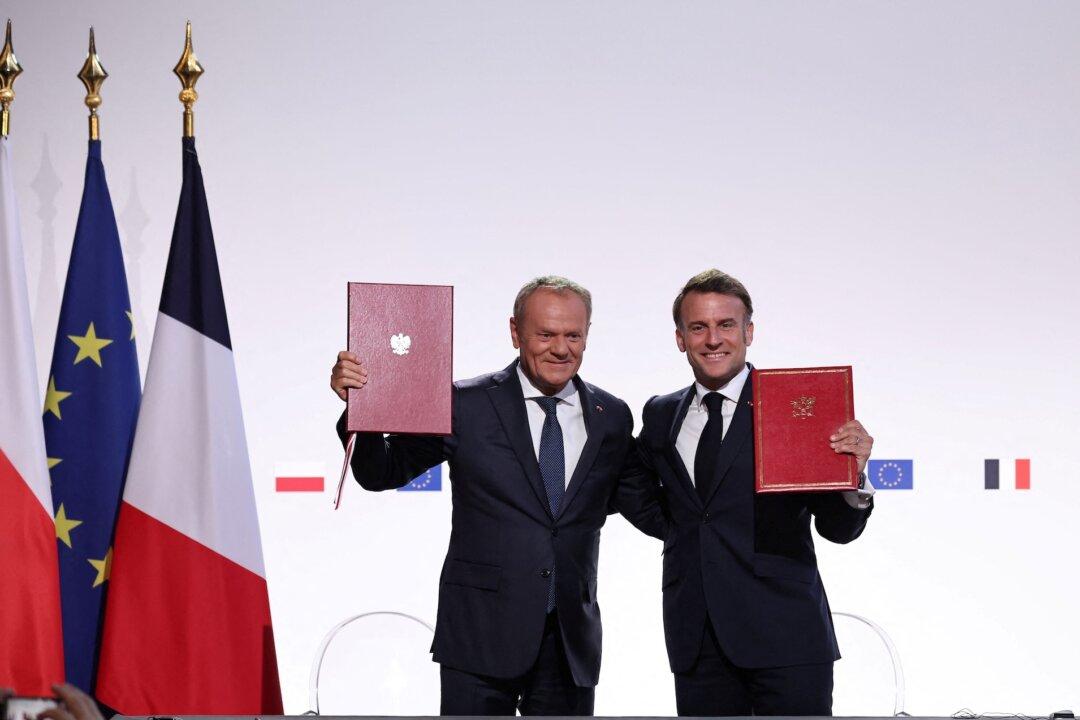France and Poland have signed a bilateral treaty to strengthen cooperation in defense, nuclear energy, and technological innovation—an agreement that reflects Europe’s broader efforts to assume more responsibility for its own security as the United States shifts its focus to the Asia-Pacific region to counter China’s threat.
The pact—signed on May 9 by Polish Prime Minister Donald Tusk and French President Emmanuel Macron during a ceremony in Nancy, France—includes a mutual assistance clause affirming that the two NATO allies will support one another in the event of an attack. It also outlines commitments to deepen military collaboration and expand partnerships in strategic sectors, including civil nuclear energy.





